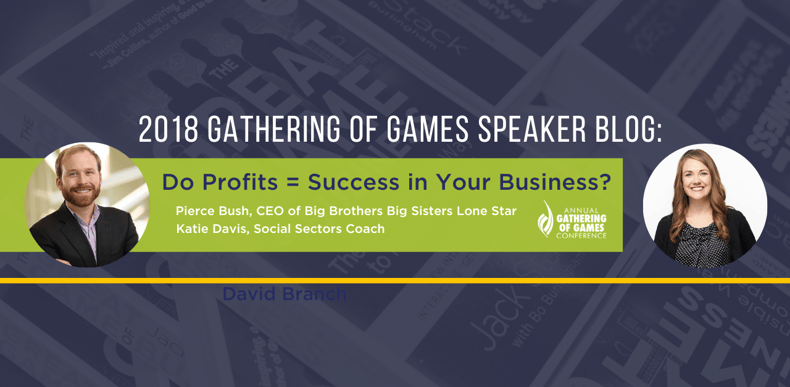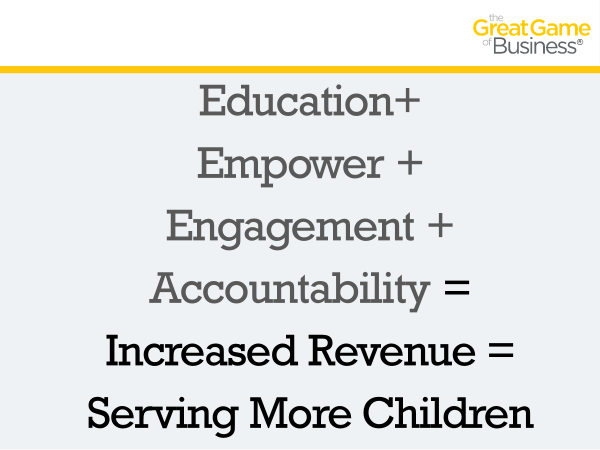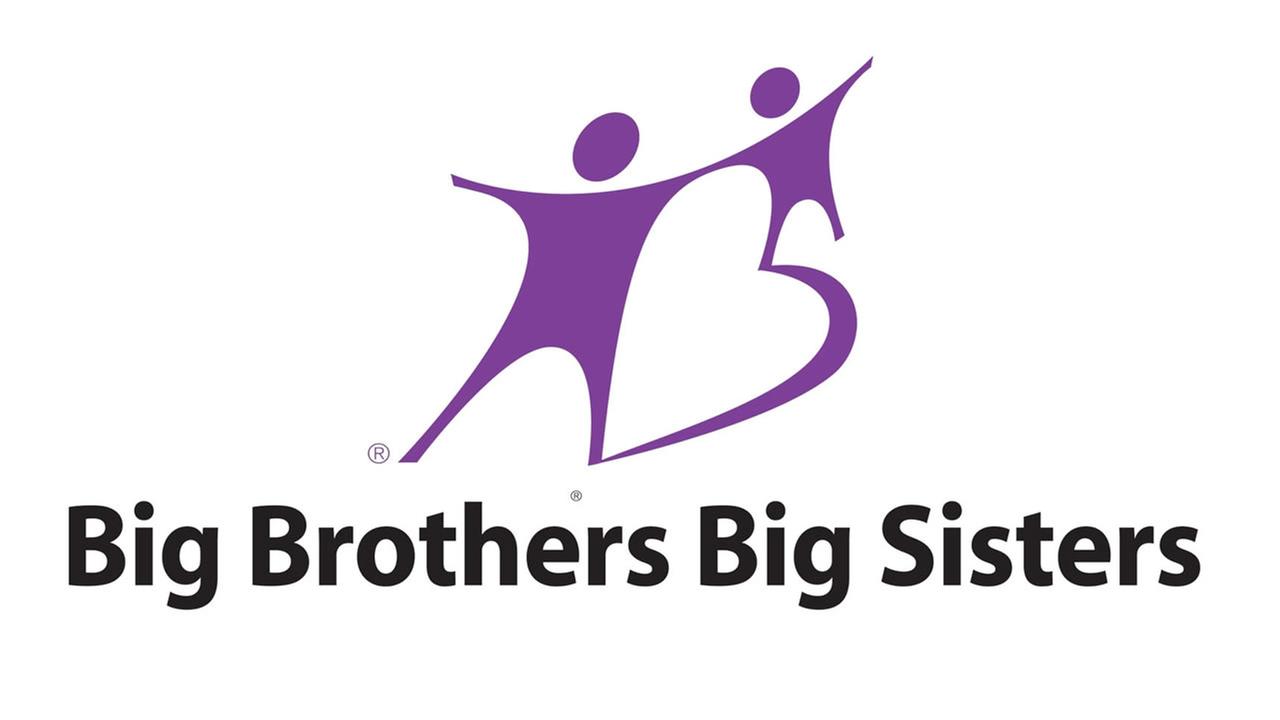 At the end of the day, can you declare victory within your business if the only thing you accomplish is making a profit?
At the end of the day, can you declare victory within your business if the only thing you accomplish is making a profit?
For me, the answer was no, but I worked for a nonprofit - Big Brothers Big Sisters of the Ozarks. Not-for-profit organizations like ours are typically created because there is not a market for their services in the private sector. They exist for more than just making money, but I couldn’t help but wonder whether other companies exist for reasons like this as well. Some call it their “noble cause,” others call it “triple bottom line,” but typically successful open-book management companies know their “why” and have a Critical Number TM tied to it.
While we adopted the philosophy of “No Money, No Mission” at Big Brothers Big Sisters, I knew there had to be another bottom line in the basic equation of The Great Game of Business®:
Have you thought about what your other bottom line would be?
Our organization agreed profitability was a given, but it was a means to an end. We needed to figure out the end because if the only thing we could announce at the end of the year was that we made a net income, we could not declare victory.
 Pierce Bush, CEO of Big Brothers Big Sisters Lone Star and I will be presenting on this topic at The Annual Gathering of Games. Our session, Sometimes Making a Profit Just Isn't Good Enough: Identifying the Best Critical Number for Multi-Bottom Line Businesses, will walk through the process of coming up with the 2nd Critical Number.
Pierce Bush, CEO of Big Brothers Big Sisters Lone Star and I will be presenting on this topic at The Annual Gathering of Games. Our session, Sometimes Making a Profit Just Isn't Good Enough: Identifying the Best Critical Number for Multi-Bottom Line Businesses, will walk through the process of coming up with the 2nd Critical Number.
About Pierce’s Journey with Great Game of Business:
Since the beginning of my time as CEO of Big Brothers Big Sisters Lone Star, we have operated with a belief that we can only achieve the best for our kids and mission when all our team members are empowered as true leaders in our work. We have created change in business practices with a belief that data and information are powerful tools, and we should constantly find ways to share and open our books. We bring team leaders in to see the numbers and better understand how all our different roles and functions across Lone Star effect those key numbers, whether they be program numbers or financial numbers.
Since that time, we have pivoted many of things in the right direction and the positive results are showing. At the time I became CEO (nearly three years ago), our cash flow meeting consisted of just four team members at Lone Star. We used to be in a dire financial position with many years of prior financial loss staring us in our face. Now we huddle across five locations on a weekly basis and as one team of 150 employees monthly. Not only are we on track toward having more active matches between a Big (positive, adult role model) and a Little (child), we are also up almost $1 million in our cash position.

We have created a program and financial scorecard across all regions with Critical Numbers that helps us work collaboratively across markets. These strategies drive program and financial numbers forward, so we can serve more kids well, together. All these open-book management changes lead to building the quality of our programs, and a stronger, more cohesive team based on group accountability, trust, and teamwork.
Other Articles You Might Like:
.png)








.png)




-5.png)

